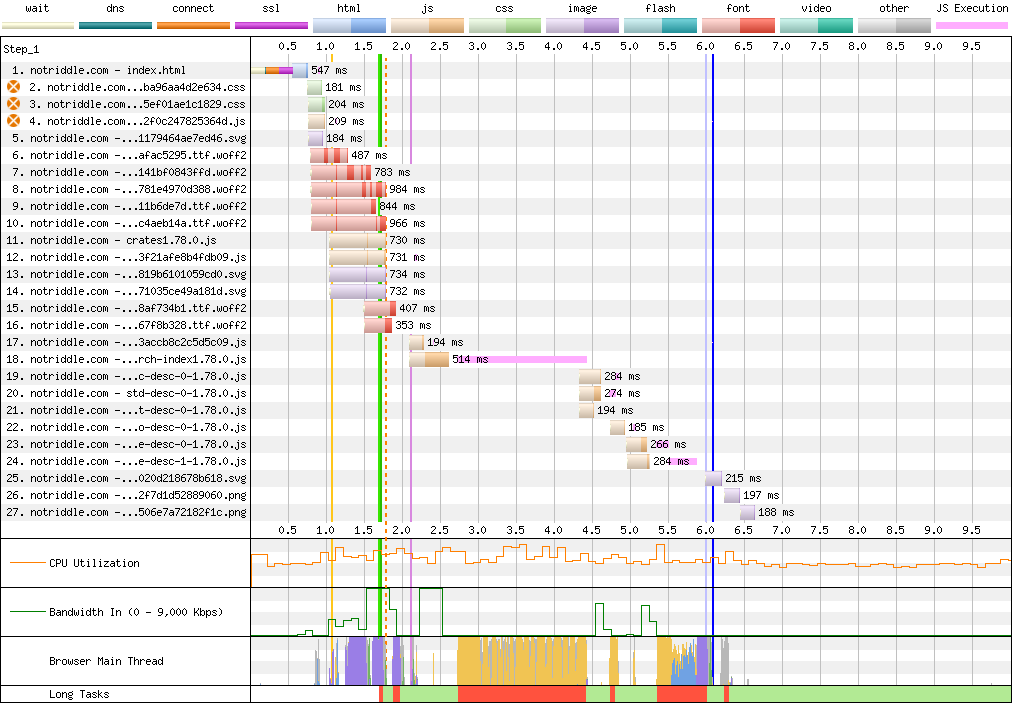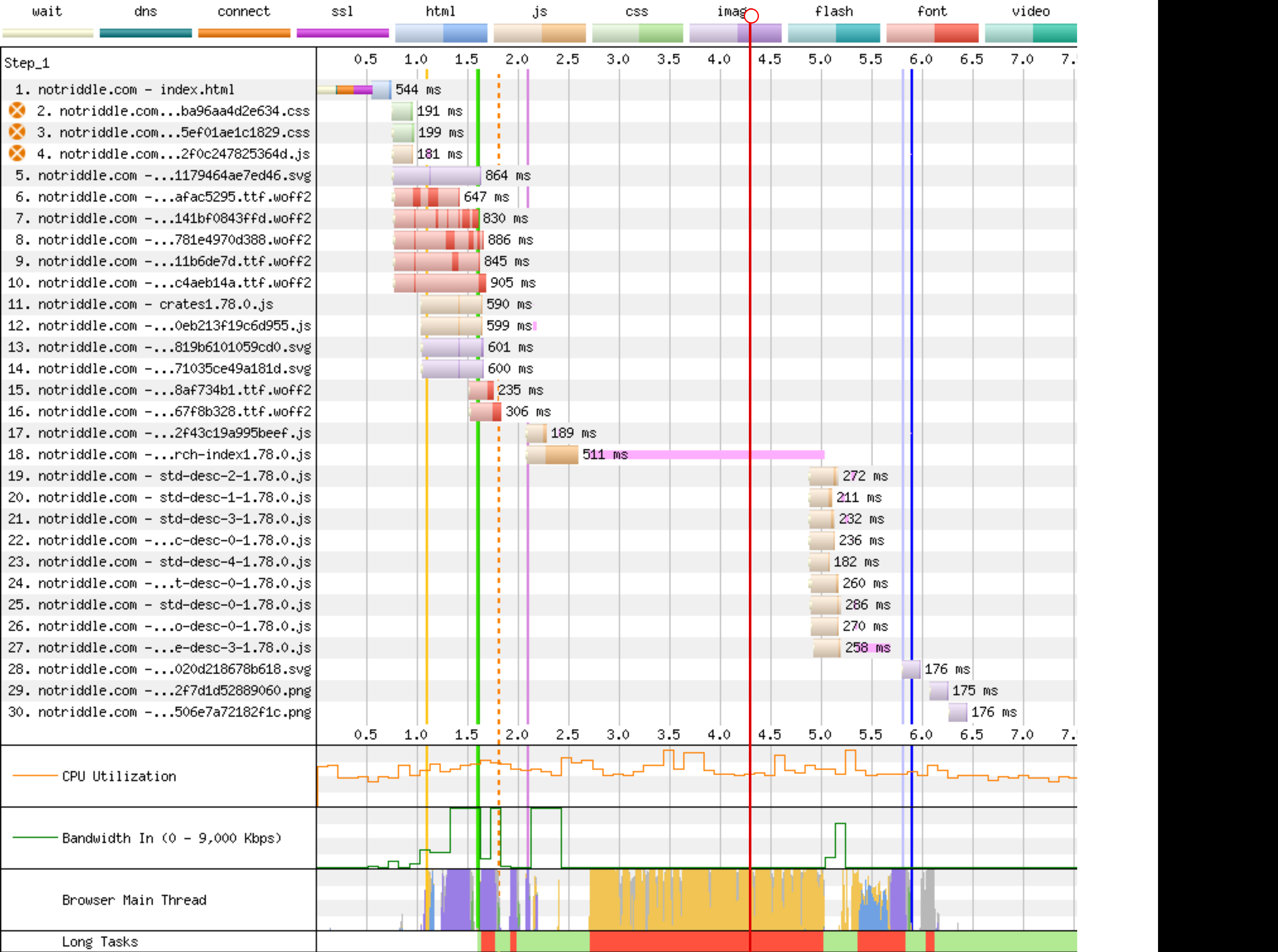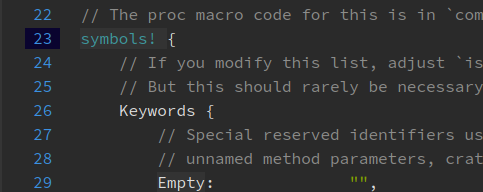rustdoc: Add support for `missing_unsafe_on_extern` feature
Follow-up of https://github.com/rust-lang/rust/pull/124482.
Not sure if the `safe` keyword is supposed to be displayed or not though? For now I didn't add it in the generated doc, only `unsafe` as usual.
cc `@spastorino`
r? `@fmease`
Stabilize `custom_code_classes_in_docs` feature
Fixes#79483.
This feature has been around for quite some time now, I think it's fine to stabilize it now.
## Summary
## What is the feature about?
In short, this PR changes two things, both related to codeblocks in doc comments in Rust documentation:
* Allow to disable generation of `language-*` CSS classes with the `custom` attribute.
* Add your own CSS classes to a code block so that you can use other tools to highlight them.
#### The `custom` attribute
Let's start with the new `custom` attribute: it will disable the generation of the `language-*` CSS class on the generated HTML code block. For example:
```rust
/// ```custom,c
/// int main(void) {
/// return 0;
/// }
/// ```
```
The generated HTML code block will not have `class="language-c"` because the `custom` attribute has been set. The `custom` attribute becomes especially useful with the other thing added by this feature: adding your own CSS classes.
#### Adding your own CSS classes
The second part of this feature is to allow users to add CSS classes themselves so that they can then add a JS library which will do it (like `highlight.js` or `prism.js`), allowing to support highlighting for other languages than Rust without increasing burden on rustdoc. To disable the automatic `language-*` CSS class generation, you need to use the `custom` attribute as well.
This allow users to write the following:
```rust
/// Some code block with `{class=language-c}` as the language string.
///
/// ```custom,{class=language-c}
/// int main(void) {
/// return 0;
/// }
/// ```
fn main() {}
```
This will notably produce the following HTML:
```html
<pre class="language-c">
int main(void) {
return 0;
}</pre>
```
Instead of:
```html
<pre class="rust rust-example-rendered">
<span class="ident">int</span> <span class="ident">main</span>(<span class="ident">void</span>) {
<span class="kw">return</span> <span class="number">0</span>;
}
</pre>
```
To be noted, we could have written `{.language-c}` to achieve the same result. `.` and `class=` have the same effect.
One last syntax point: content between parens (`(like this)`) is now considered as comment and is not taken into account at all.
In addition to this, I added an `unknown` field into `LangString` (the parsed code block "attribute") because of cases like this:
```rust
/// ```custom,class:language-c
/// main;
/// ```
pub fn foo() {}
```
Without this `unknown` field, it would generate in the DOM: `<pre class="language-class:language-c language-c">`, which is quite bad. So instead, it now stores all unknown tags into the `unknown` field and use the first one as "language". So in this case, since there is no unknown tag, it'll simply generate `<pre class="language-c">`. I added tests to cover this.
EDIT(camelid): This description is out-of-date. Using `custom,class:language-c` will generate the output `<pre class="language-class:language-c">` as would be expected; it treats `class:language-c` as just the name of a language (similar to the langstring `c` or `js` or what have you) since it does not use the designed class syntax.
Finally, I added a parser for the codeblock attributes to make it much easier to maintain. It'll be pretty easy to extend.
As to why this syntax for adding attributes was picked: it's [Pandoc's syntax](https://pandoc.org/MANUAL.html#extension-fenced_code_attributes). Even if it seems clunkier in some cases, it's extensible, and most third-party Markdown renderers are smart enough to ignore Pandoc's brace-delimited attributes (from [this comment](https://github.com/rust-lang/rust/pull/110800#issuecomment-1522044456)).
r? `@notriddle`
rustdoc: Clarify const-stability with regard to normal stability
Fixes#125511.
- Elide const-unstable if also unstable overall
- Show "const" for const-unstable if also overall unstable
If a const function is unstable overall (and thus, in all circumstances
I know of, also const-unstable), we should show the option to use it as
const. You need to enable a feature to use the function at all anyway.
If the function is stabilized without also being const-stabilized, then
we do not show the const keyword and instead show "const: unstable" in
the version info.
It's confusing because if a function is unstable overall, there's no
need to highlight the constness is also unstable. Technically, these
attributes (overall stability and const-stability) are separate, but in
practice, we don't even show the const-unstable's feature flag (it's
normally the same as the overall function).
To decide if internal items should be inlined in a doc page,
check if the crate is itself internal, rather than if it has
the rustc_private feature flag. The standard library uses
internal items, but is not itself internal and should not show
internal items on its docs pages.
Correctly handle inlining of doc hidden foreign items
Fixes#123435.
In case a foreign item has doc(hidden) attribute, we simply merged its attributes with the re-export's, making it being removed once in the `strip_hidden` pass.
The solution was to use the same as for local reexported items: merge attributes, but not some of them (like `doc(hidden)`).
I originally checked if we could simply update `Item::is_doc_hidden` method to use `self.inline_stmt_id.is_some_and(|def_id| tcx.is_doc_hidden(def_id))` but unfortunately, it added (local) items that shouldn't be inlined. At least it unifies local and foreign items inlining, which I think is the best course of action here.
r? `@notriddle`
rustdoc-search: shard the search result descriptions
## Preview
This makes no visual changes to rustdoc search. It's a pure perf improvement.
<details><summary>old</summary>
Preview: <http://notriddle.com/rustdoc-html-demo-10/doc/std/index.html?search=vec>
WebPageTest Comparison with before branch on a sort of worst case (searching `vec`, winds up downloading most of the shards anyway): <https://www.webpagetest.org/video/compare.php?tests=240317_AiDc61_2EM,240317_AiDcM0_2EN>
Waterfall diagram:

</details>
Preview: <http://notriddle.com/rustdoc-html-demo-10/doc2/std/index.html?search=vec>
WebPageTest Comparison with before branch on a sort of worst case (searching `vec`, winds up downloading most of the shards anyway): <https://www.webpagetest.org/video/compare.php?tests=240322_BiDcCH_13R,240322_AiDcJY_104>

## Description
r? `@GuillaumeGomez`
The descriptions are, on almost all crates[^1], the majority of the size of the search index, even though they aren't really used for searching. This makes it relatively easy to separate them into their own files.
Additionally, this PR pulls out information about whether there's a description into a bitmap. This allows us to sort, truncate, *then* download.
This PR also bumps us to ES8. Out of the browsers we support, all of them support async functions according to caniuse.
https://caniuse.com/async-functions
[^1]:
<https://microsoft.github.io/windows-docs-rs/>, a crate with
44MiB of pure names and no descriptions for them, is an outlier
and should not be counted. But this PR should improve it, by replacing a long line of empty strings with a compressed bitmap with a single Run section. Just not very much.
## Detailed sizes
```console
$ cat test.sh
set -ex
cp ../search-index*.js search-index.js
awk 'FNR==NR {a++;next} FNR<a-3' search-index.js{,} | awk 'NR>1 {gsub(/\],\\$/,""); gsub(/^\["[^"]+",/,""); print} {next}' | sed -E "s:\\\\':':g" > search-index.json
jq -c '.t' search-index.json > t.json
jq -c '.n' search-index.json > n.json
jq -c '.q' search-index.json > q.json
jq -c '.D' search-index.json > D.json
jq -c '.e' search-index.json > e.json
jq -c '.i' search-index.json > i.json
jq -c '.f' search-index.json > f.json
jq -c '.c' search-index.json > c.json
jq -c '.p' search-index.json > p.json
jq -c '.a' search-index.json > a.json
du -hs t.json n.json q.json D.json e.json i.json f.json c.json p.json a.json
$ bash test.sh
+ cp ../search-index1.78.0.js search-index.js
+ awk 'FNR==NR {a++;next} FNR<a-3' search-index.js search-index.js
+ awk 'NR>1 {gsub(/\],\\$/,""); gsub(/^\["[^"]+",/,""); print} {next}'
+ sed -E 's:\\'\'':'\'':g'
+ jq -c .t search-index.json
+ jq -c .n search-index.json
+ jq -c .q search-index.json
+ jq -c .D search-index.json
+ jq -c .e search-index.json
+ jq -c .i search-index.json
+ jq -c .f search-index.json
+ jq -c .c search-index.json
+ jq -c .p search-index.json
+ jq -c .a search-index.json
+ du -hs t.json n.json q.json D.json e.json i.json f.json c.json p.json a.json
64K t.json
800K n.json
8.0K q.json
4.0K D.json
16K e.json
192K i.json
544K f.json
4.0K c.json
36K p.json
20K a.json
```
These are, roughly, the size of each section in the standard library (this tool actually excludes libtest, for parsing-json-with-awk reasons, but libtest is tiny so it's probably not important).
t = item type, like "struct", "free fn", or "type alias". Since one byte is used for every item, this implies that there are approximately 64 thousand items in the standard library.
n = name, and that's now the largest section of the search index with the descriptions removed from it
q = parent *module* path, stored parallel to the items within
D = the size of each description shard, stored as vlq hex numbers
e = empty description bit flags, stored as a roaring bitmap
i = parent *type* index as a link into `p`, stored as decimal json numbers; used only for associated types; might want to switch to vlq hex, since that's shorter, but that would be a separate pr
f = function signature, stored as lists of lists that index into `p`
c = deprecation flag, stored as a roaring bitmap
p = parent *type*, stored separately and linked into from `i` and `f`
a = alias, as [[key, value]] pairs
## Search performance
http://notriddle.com/rustdoc-html-demo-11/perf-shard/index.html
For example, in stm32f4:
<table><thead><tr><th>before<th>after</tr></thead>
<tbody><tr><td>
```
Testing T -> U ... in_args = 0, returned = 0, others = 200
wall time = 617
Testing T, U ... in_args = 0, returned = 0, others = 200
wall time = 198
Testing T -> T ... in_args = 0, returned = 0, others = 200
wall time = 282
Testing crc32 ... in_args = 0, returned = 0, others = 0
wall time = 426
Testing spi::pac ... in_args = 0, returned = 0, others = 0
wall time = 673
```
</td><td>
```
Testing T -> U ... in_args = 0, returned = 0, others = 200
wall time = 716
Testing T, U ... in_args = 0, returned = 0, others = 200
wall time = 207
Testing T -> T ... in_args = 0, returned = 0, others = 200
wall time = 289
Testing crc32 ... in_args = 0, returned = 0, others = 0
wall time = 418
Testing spi::pac ... in_args = 0, returned = 0, others = 0
wall time = 687
```
</td></tr><tr><td>
```
user: 005.345 s
sys: 002.955 s
wall: 006.899 s
child_RSS_high: 583664 KiB
group_mem_high: 557876 KiB
```
</td><td>
```
user: 004.652 s
sys: 000.565 s
wall: 003.865 s
child_RSS_high: 538696 KiB
group_mem_high: 511724 KiB
```
</td></tr>
</table>
This perf tester is janky and unscientific enough that the apparent differences might just be noise. If it's not an order of magnitude, it's probably not real.
## Future possibilities
* Currently, results are not shown until the descriptions are downloaded. Theoretically, the description-less results could be shown. But actually doing that, and making sure it works properly, would require extra work (we have to be careful to avoid layout jumps).
* More than just descriptions can be sharded this way. But we have to be careful to make sure the size wins are worth the round trips. Ideally, data that’s needed only for display should be sharded while data needed for search isn’t.
* [Full text search](https://internals.rust-lang.org/t/full-text-search-for-rustdoc-and-doc-rs/20427) also needs this kind of infrastructure. A good implementation might store a compressed bloom filter in the search index, then download the full keyword in shards. But, we have to be careful not just of the amount readers have to download, but also of the amount that [publishers](https://gist.github.com/notriddle/c289e77f3ed469d1c0238d1d135d49e1) have to store.
The descriptions are, on almost all crates[^1], the majority
of the size of the search index, even though they aren't really
used for searching. This makes it relatively easy to separate
them into their own files.
This commit also bumps us to ES8. Out of the browsers we support,
all of them support async functions according to caniuse.
https://caniuse.com/async-functions
[^1]:
<https://microsoft.github.io/windows-docs-rs/>, a crate with
44MiB of pure names and no descriptions for them, is an outlier
and should not be counted.
rustdoc: fix up old test
`tests/rustdoc/line-breaks.rs` had several issues:
1. It used `//`@count`` instead of `// `@count`` (notice the space!) which gets treated as a `ui_test` directive instead of a `htmldocck` one. `compiletest` didn't flag it as an error because it's allowlisted ([#121561](https://github.com/rust-lang/rust/pull/121561)) presumably precisely because of this test. And before the compiletest→ui_test migration, these directives must've been ignored, too, because …
2. … the checks themselves no longer work either: The count of `<br>`s is actually 0 in all 3 cases because – well – we no longer generate any `<br>`s inside `<pre>`s.
Since I don't know how to ``@count`` `\n`s instead of `<br>`s, I've turned them into ``@matches`.` Btw, I don't know if this test is still desirable or if we have other tests that cover this (I haven't checked).
r? rustdoc
Expose the Freeze trait again (unstably) and forbid implementing it manually
non-emoji version of https://github.com/rust-lang/rust/pull/121501
cc #60715
This trait is useful for generic constants (associated consts of generic traits). See the test (`tests/ui/associated-consts/freeze.rs`) added in this PR for a usage example. The builtin `Freeze` trait is the only way to do it, users cannot work around this issue.
It's also a useful trait for building some very specific abstrations, as shown by the usage by the `zerocopy` crate: https://github.com/google/zerocopy/issues/941
cc ```@RalfJung```
T-lang signed off on reexposing this unstably: https://github.com/rust-lang/rust/pull/121501#issuecomment-1969827742
[rustdoc] Prevent inclusion of whitespace character after macro_rules ident
Discovered this bug randomly when looking at:

We were too eagerly trying to merge tokens that shouldn't be merged together (for example if you have a code comment followed by a code comment, we merge them in one attribute to reduce the DOM size).
r? ``@notriddle``
Fix link generation for foreign macro in jump to definition feature
The crate name is already added to the link so it shouldn't be added a second time for local foreign macros.
r? ``@notriddle``
rustdoc: fix and refactor HTML rendering a bit
* refactoring: get rid of a bunch of manual `f.alternate()` branches
* not sure why this wasn't done so already, is this perf-sensitive?
* fix an ICE in debug builds of rustdoc
* rustdoc used to crash on empty outlives-bounds: `where 'a:`
* properly escape const generic defaults
* actually print empty trait and outlives-bounds (doesn't work for cross-crate reexports yet, will fix that at some other point) since they can have semantic significance
* outlives-bounds: forces lifetime params to be early-bound instead of late-bound which is technically speaking part of the public API
* trait-bounds: can affect the well-formedness, consider
* makeshift “const-evaluatable” bounds under `generic_const_exprs`
* bounds to force wf-checking in light of #100041 (quite artificial I know, I couldn't figure out something better), see https://github.com/rust-lang/rust/pull/121160#discussion_r1491563816
Add extra indent spaces for rust-playground link
Fixes#120998
Seems add `rustfmt` for this is somehow too heavy,
only adding indent spaces at the starting of each line of code seems good enough.
rustdoc: Correctly handle attribute merge if this is a glob reexport
Fixes#120487.
The regression was introduced in https://github.com/rust-lang/rust/pull/113091. Only non-glob reexports should have been impacted.
cc `````@Nemo157`````
r? `````@notriddle`````
rustdoc: offset generic args of cross-crate trait object types when cleaning
Fixes#119529.
This PR contains several refactorings apart from the bug fix.
Best reviewed commit by commit.
r? GuillaumeGomez
Use diagnostic namespace in stdlib
This required a minor fix to have the diagnostics shown in third party crates when the `diagnostic_namespace` feature is not enabled. See 5d63f5d8d1 for details. I've opted for having a single PR for both changes as it's really not that much code. If it is required it should be easy to split up the change into several PR's.
r? `@compiler-errors`
[rustdoc] Fix invalid handling for static method calls in jump to definition feature
I realized when working on a clippy lint that static method calls on `Self` could not give me the method `Res`. For that, we need to use `typeck` and so that's what I did in here.
It fixes the linking to static method calls.
r? ````@notriddle````
It doesn't look quite right, because the lines are too far apart,
and it's not going to be announced by screenreaders as a menu button,
since that's not what the symbol means.
This adds a real tooltip and uses a better drawing of the icon.
Don't merge cfg and doc(cfg) attributes for re-exports
Fixes#112881.
## Explanations
When re-exporting things with different `cfg`s there are two things that can happen:
* The re-export uses a subset of `cfg`s, this subset is sufficient so that the item will appear exactly with the subset
* The re-export uses a non-subset of `cfg`s (e.g. like the example I posted just above where the re-export is ungated), if the non-subset `cfg`s are active (e.g. compiling that example on windows) then this will be a compile error as the item doesn't exist to re-export, if the subset `cfg`s are active it behaves like 1.
### Glob re-exports?
**This only applies to non-glob inlined re-exports.** For glob re-exports the item may or may not exist to be re-exported (potentially the `cfg`s on the path up until the glob can be removed, and only `cfg`s on the globbed item itself matter), for non-inlined re-exports see https://github.com/rust-lang/rust/issues/85043.
cc `@Nemo157`
r? `@notriddle`
Remove mention of rust to make the error message generic.
The deprecation notice is used when in crates as well. This applies to versions Rust or Crates.
Relates #118148
The deprecation notice is used when in crates as well. This applies to versions Rust or Crates.
Fixes#118148
Signed-off-by: Harold Dost <h.dost@criteo.com>
This is about equally readable, a lot more terse, and stops
special-casing functions and methods.
```console
$ du -hs doc-old/ doc-new/
671M doc-old/
670M doc-new/
```